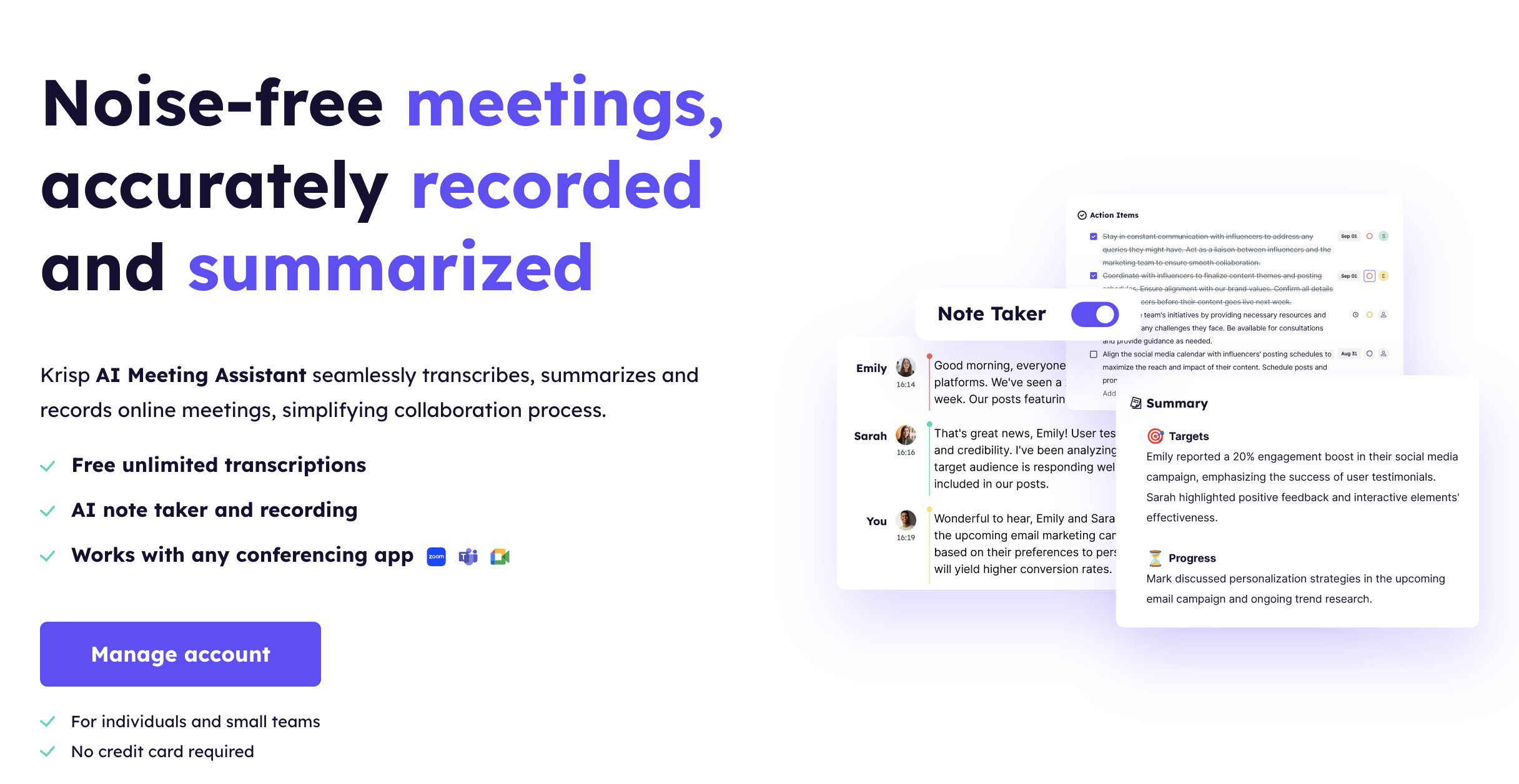Ad hoc requests are an inevitable part of professional life. They demand immediate attention and often arise without prior notice. Successfully managing these requests is critical to maintaining productivity and meeting organizational goals.
In this article, we cover what ad hoc request is, its implications, and provide practical tips on managing it efficiently.
What is an Ad Hoc Request?

An ad hoc request is an unplanned, spontaneous task or requirement that needs to be addressed promptly. These requests can come in many forms:
- A last-minute demand from a client.
- A sudden technical issue requiring immediate resolution.
- A request for data or information that wasn’t part of the planned workload.
Ad hoc request is often disruptive, as it requires diverting attention from pre-scheduled tasks. However, managing it efficiently is crucial to ensuring operational success.
Examples of Ad Hoc Projects
Ad hoc projects are typically unplanned tasks or demands that arise suddenly and require immediate attention. These projects can vary greatly depending on the industry, organization, or individual roles, but they share the common characteristic of being unanticipated.
Below are some examples of ad hoc projects across different contexts:
- Emergency IT Support Tasks
In the tech industry, ad hoc projects often involve resolving unforeseen issues. For instance, a company might experience a sudden system outage, requiring the IT team to immediately drop all planned work to restore services. Similarly, an urgent request to fix a critical bug in a live application could qualify as an ad hoc task.
- Last-Minute Client Requests
Unexpected demands can be common in client-facing roles. For example, a client might request a detailed performance report or new campaign analysis just hours before a meeting. Marketing teams may need to prepare impromptu presentations or respond to urgent inquiries about project metrics.
- Crisis Communication
For public relations or corporate communication teams, ad hoc projects may include crafting and distributing responses to unexpected events, such as a negative media story or a public controversy. These tasks demand rapid collaboration and execution to protect the organization’s reputation.
- Event-Related Tasks
Ad hoc projects can arise during event planning and execution. For instance, an event organizer may need to address last-minute cancellations, secure an alternative vendor, or create new marketing materials on short notice to accommodate an unforeseen change in the program.
- Financial or Data Analysis
Finance teams may encounter ad hoc requests such as generating an immediate cash flow projection or conducting a detailed analysis of quarterly expenses ahead of schedule. Similarly, data analysts might be asked to provide insights into a specific metric for an urgent board meeting.
- Legal and Compliance Requests
In industries with strict regulatory environments, legal teams may face ad hoc demands such as reviewing and approving contracts for an unplanned partnership or preparing compliance documentation to address sudden audits or inquiries.
- Personnel and HR Issues
Human resources departments often deal with unanticipated tasks, such as managing last-minute recruitment needs, responding to an employee grievance, or organizing emergency training sessions to address workplace compliance gaps.
Why is Tracking Ad Hoc Projects Important?
Ad hoc projects, by nature, are unplanned and can disrupt carefully constructed workflows. However, effectively tracking these tasks is not just beneficial—it’s essential for maintaining organizational efficiency and productivity. Here’s a detailed discussion on why tracking ad hoc projects matters:
1. Accountability
A structured system for tracking ad hoc tasks ensures accountability at every level:
- Clear Ownership: When a request is logged and assigned within a tracking system, it becomes clear who is responsible for its completion. This minimizes confusion and finger-pointing if the task is delayed or mishandled.
- Progress Monitoring: Tracking provides visibility into the current status of each task, allowing managers and stakeholders to monitor its progress and address bottlenecks proactively.
- Task Closure: Without a documented system, it’s easy for tasks to be overlooked. A formal tracking mechanism ensures every ad hoc request is closed out properly, leaving no loose ends.
Accountability fosters trust and reliability, ensuring tasks are executed with a clear understanding of roles and responsibilities.
2. Resource Allocation
Ad hoc tasks often arise unexpectedly, putting a strain on existing resources. Tracking these requests helps in effective resource management by:
- Workload Evaluation: A tracking system provides insights into how ad hoc request is distributed among team members. This data helps managers identify overburdened individuals and redistribute tasks to balance workloads.
- Capacity Planning: By understanding the volume of ad hoc request over time, managers can better estimate the additional resources or time buffers needed to handle such tasks.
- Priority-Based Assignments: Managers track tasks to align them with the right resources based on urgency, skill sets, and availability, ensuring timely completion of high-priority tasks.
This systematic approach reduces resource wastage and ensures teams operate efficiently, even under sudden demands.
3. Trend Analysis
One of the most significant benefits of tracking ad hoc projects is the ability to analyze trends and uncover recurring issues:
- Identifying Patterns: Over time, certain types of ad hoc requests may emerge as common themes, such as repeated client queries or recurring system failures. Recognizing these patterns allows organizations to address root causes and implement long-term solutions.
- Spotting Process Gaps: Regular ad hoc requests can indicate inefficiencies in existing workflows or gaps in planning. For instance, frequent requests for data reports may suggest a need for automated reporting tools.
- Proactive Measures: By understanding historical trends, teams can implement proactive measures to prevent similar issues from occurring in the future, reducing the frequency of ad hoc interruptions.
This analysis transforms reactive task management into a proactive strategy for continuous improvement.
4. Improved Planning
Tracking ad hoc projects provides valuable data that informs better planning and decision-making:
- Forecasting Needs: Historical data from tracked requests helps predict the frequency, type, and complexity of future ad hoc tasks. This forecasting allows teams to plan for contingencies effectively.
- Time Management: With insights from tracking, teams can allocate buffer time in their schedules for handling unexpected tasks without derailing planned work.
- Enhanced Process Design: Understanding the nature of ad hoc tasks enables organizations to refine workflows and processes, reducing the likelihood of last-minute emergencies.
By integrating tracking insights into strategic planning, teams become more resilient and better prepared for unforeseen challenges.
The Consequences of Not Tracking Ad Hoc Projects
Failing to track ad hoc projects can lead to severe consequences:
- Missed Deadlines:Untracked tasks can slip through the cracks or face delays, leading to missed deadlines and dissatisfied stakeholders.
- Overworked Teams: Without a system, some team members may be unknowingly overburdened, leading to burnout and decreased morale.
- Inefficient Processes: Failing to document similar issues causes repeated mistakes, wasting time and resources.
- Client Dissatisfaction: Inconsistent handling of ad hoc requests can damage client relationships and tarnish the organization’s reputation.
Tracking acts as a safeguard against these pitfalls, ensuring a smoother and more reliable workflow.
Common Challenges in Tracking Ad Hoc Projects
Tracking ad hoc projects comes with its own set of challenges, including:
- Lack of a Centralized System: Ad hoc tasks often originate from different sources, such as emails, calls, or in-person requests, making them hard to track.
- Resource Strain: Handling urgent requests can overwhelm team members, especially if their workload is already high.
- Interruptions: Ad hoc tasks frequently interrupt planned work, reducing overall productivity.
- Ambiguity: Ad hoc requests are often poorly defined, leading to delays and miscommunication.
What Happens if Ad Hoc Projects Are Not Tracked?
Failure to track ad hoc projects can lead to:
- Missed Deadlines: Untracked tasks can be forgotten or deprioritized, affecting outcomes.
- Burnout: Overburdened teams may feel stressed, leading to decreased morale and productivity.
- Inefficiency: Repeated handling of similar issues without tracking means the same problems resurface without resolution.
- Client Dissatisfaction: Unaddressed or delayed ad hoc requests can damage client relationships and trust.
Tracking ensures accountability, efficiency, and quality in handling these projects.
Practical Tips on How to Manage Ad Hoc Requests
Establish a Request Intake Process
To manage ad hoc requests effectively, it’s essential to create a streamlined process for receiving and logging them. Tools like Trello, Asana, or JIRA can be used to track and prioritize requests in a central location.
- Log every request, no matter how small.
- Assign priority levels to each task.
- Ensure every team member knows the protocol for submitting ad hoc requests.
Prioritize Requests Using a Matrix
Not all ad hoc tasks have equal urgency or importance. Use a priority matrix to categorize tasks into four quadrants:
- Urgent and Important: Address immediately.
- Important but Not Urgent: Schedule for later.
- Urgent but Not Important: Delegate if possible.
- Neither Urgent nor Important: Defer or discard.
This approach ensures you focus your energy on the most critical tasks.
Allocate Buffer Time in Your Schedule
Incorporate buffer time into your daily or weekly plans to accommodate unplanned tasks.
- Set aside 15-20% of your work hours as contingency time.
- Use this time to handle ad hoc requests without disrupting other priorities.
By building flexibility into your schedule, you minimize the impact of unforeseen tasks.
Communicate Clear Expectations
Transparency is key when managing ad hoc tasks. Communicate effectively with requestors to set expectations regarding:
- Timeline: When you can address their request.
- Impact: How the task may affect your existing commitments.
- Ownership: Who is responsible for completing the task.
Clear communication helps avoid misunderstandings and ensures smooth collaboration.
Leverage Technology for Automation
Recurring ad hoc tasks can be automated to save time. Consider tools such as:
Krisp
Krisp is a cutting-edge tool designed to simplify workflows and enhance communication with its AI-powered features. Here are five standout features that make Krisp an invaluable resource for individuals and teams alike:

AI Noise Cancellation
Removes background noises, voices, and echoes from online meetings, ensuring crystal-clear audio quality. Works with popular meeting platforms to improve communication during remote calls.Keeps discussions distraction-free, whether you’re in a busy office or a noisy home environment.
Meeting Transcription
Automatically transcribes meetings and calls, making it easy to document conversations as they happen. Designed for individuals and teams to stay on the same page with detailed, accurate transcriptions.Makes it simple to revisit and search meeting content for important information.
AI Meeting Notes and Summary
Zapier
Zapier is a powerful automation tool that connects your apps and streamlines task management. For handling ad hoc requests, Zapier offers several practical features:

Automated Task Logging
Create “Zaps” (automated workflows) that log incoming ad hoc requests from emails, Slack messages, or other platforms into your project management tools like Trello or Asana.
Task Notifications
Automatically notify team members about new assignments or updates related to ad hoc tasks, ensuring everyone is in the loop.
Recurring Task Automation
If certain ad hoc requests occur frequently, Zapier can automate these processes, saving your team valuable time and reducing redundancy.
Empower Your Team with Training
Delegation is an effective way to manage workload. Ensure your team is equipped to handle ad hoc requests by:
- Cross-Training: Provide skills development for handling diverse tasks.
- Empowerment: Allow team members to decide on smaller ad hoc tasks without seeking approval.
This approach fosters collaboration and distributes the workload more evenly.
Review and Analyze Request Trends
Conduct regular reviews of your ad hoc request log to identify trends and recurring issues.
- Evaluate Patterns: Are certain types of requests more frequent?
- Identify Gaps: What process improvements could reduce these requests?
- Implement Solutions: Address root causes proactively to minimize future interruptions.
This analysis helps improve efficiency and reduces the frequency of similar ad hoc demands.
Final Thoughts
Ad hoc requests are inevitable in professional life, often arising without warning and demanding immediate attention. Although they can disrupt carefully planned workflows, they do not have to derail your productivity or compromise your long-term objectives. Instead, with the right approach, you can manage them effectively to stay on track. By adopting a structured and proactive approach to managing these tasks, you can effectively balance the demands of urgent requests with your ongoing responsibilities.
The key to success is creating systems and strategies that allow flexibility without sacrificing focus. Start by establishing clear processes for receiving, prioritizing, and tracking ad hoc tasks. Use tools and technologies to streamline these processes, ensuring no request is overlooked and every team member is aligned. Platforms like Krisp and Zapier can help automate and document workflows, saving time and reducing resource strain.


